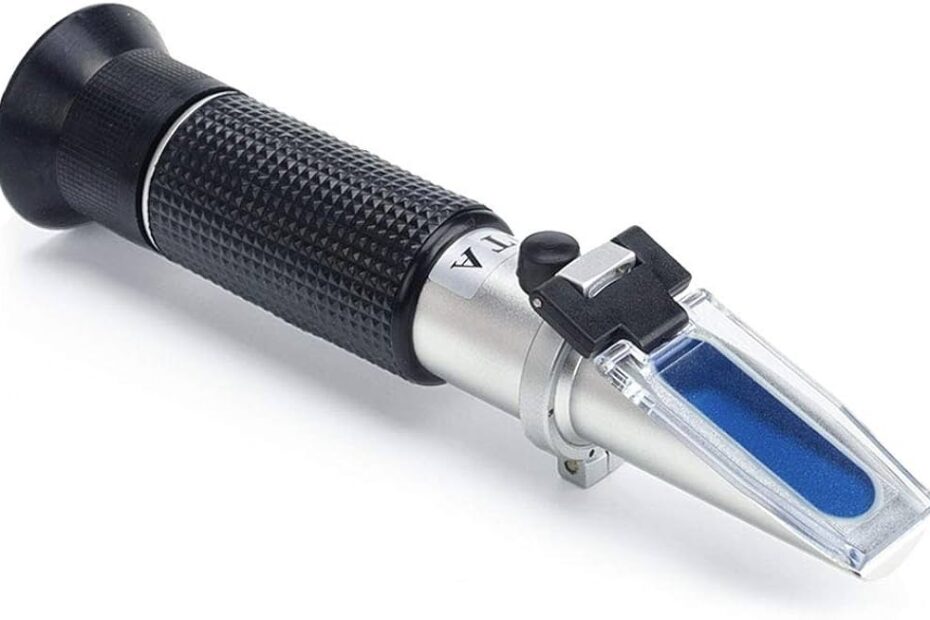Buy a refractometer
A refractometer is a tool used by aquarium hobbyists, especially those keeping saltwater or reef aquariums, to measure the salinity or specific gravity of the water. Maintaining the correct salinity is vital for the health of marine organisms.
Here’s a detailed look at aquarium refractometers:
How a Refractometer Works:
- A refractometer works on the principle of refraction. When light passes from one medium (air) into another (the water sample), it bends or refracts. The degree of bending depends on the density of the medium. In the context of aquariums, denser (more saline) water will cause more bending of the light.
- By measuring this bending, a refractometer can determine the salinity or specific gravity of the water.
Using a Refractometer:
- Calibration: Before using the refractometer, it’s essential to calibrate it using distilled or RO/DI (reverse osmosis/deionized) water. Place a few drops on the refractometer’s prism, close the plate, and look through the eyepiece. The reading should be at zero (for salinity) or 1.000 (for specific gravity). If not, adjust using the calibration screw.
- Testing: Place a few drops of your aquarium water on the prism, close the plate, and look through the eyepiece. The boundary line will indicate the salinity or specific gravity.
- Cleaning: After each use, clean the prism plate with RO/DI water to remove any salt residues.
Benefits:
- Accuracy: Refractometers are generally more accurate than hydrometers, another tool used to measure salinity.
- Durability: They are durable and less prone to errors over time compared to some other tools.
- Ease of Use: Once you know how to use one, a quick drop of water and a glance can give you your reading.
Considerations When Buying:
- Automatic Temperature Compensation (ATC): Salinity readings can be affected by temperature. Models with ATC adjust for temperature variations, providing more accurate readings.
- Scale: Some refractometers display both specific gravity and salinity. Choose one that suits your preferences.
- Quality of Optics: A refractometer with clear optics will be easier to read and provide more accurate results.
Maintenance and Care:
- Regular Calibration: This ensures consistent accuracy.
- Protection: Avoid dropping the refractometer or subjecting it to extreme temperatures.
- Storage: Store it in a protective case to prevent dust and debris from accumulating.
Conclusion:
For saltwater aquarium hobbyists, maintaining the right salinity is crucial for the health of marine life. A refractometer is an invaluable tool in this context, offering an accurate and efficient way to measure and monitor water salinity. Proper usage and regular calibration are essential for the best results.

